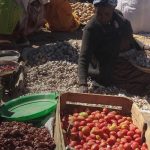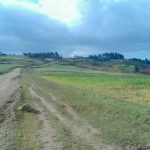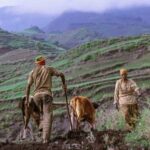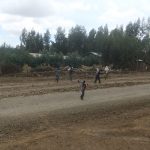Local food markets play crucial roles in promoting dietary diversity and improving nutritional outcomes in poor rural communities. Evidence on the quality of local food markets in Africa in providing these nutritious foods in the face of climatic shocks is however limited, partly due to lack of appropriate metrics to measure food market qualities in […]
Does Small-Scale Irrigation Affect Women’s Time Allocation? Insights from Ethiopia
Women’s time use and overall work burden have gained attention from researchers and policymakers as an essential aspect of their empowerment; time is an important resource that women often lack, and women’s agency to allocate time to preferred activities is limited. Women are often heavily involved in unpaid domestic and agricultural activities driven by gender […]
Grappling with compounding crises in domestic fertilizer markets in Africa: The case of Ethiopia
Global fertilizer markets experienced significant price surges beginning in 2020 and through 2022 due to a combination of factors, including higher natural gas prices, supply chain disruptions triggered by COVID-19, trade disruptions due to the Russia-Ukraine war, and export restrictions. Although parallel increases in international agricultural commodity prices may have cushioned these price shocks, insufficient […]
Associations of WHO/UNICEF Joint Monitoring Program (JMP) Water, Sanitation and Hygiene (WASH) service ladder service levels and sociodemographic factors with diarrhoeal disease among children under 5 years in Bishoftu town, Ethiopia
Objective: To determine the associations of WHO/UNICEF Joint Monitoring Program Water, Sanitation and Hygiene (WASH) Service Ladder service levels and sociodemographic factors with diarrhoeal disease among children under 5 years in Bishoftu town, Ethiopia. Read more>>
Access to water, sanitation and hygiene (WASH) services and drinking water contamination risk levels in households of Bishoftu Town, Ethiopia: A cross-sectional study
Access to safe drinking water, sanitation, and hygiene is a fundamental human right and essential to control infectious diseases. However, many countries, including Ethiopia, do not have adequate data to report on basic water, sanitation, and hygiene (WASH) services. Although contaminated drinking water spreads diseases like cholera, diarrhea, typhoid, and dysentery, studies on drinking water […]
- « Previous Page
- 1
- …
- 3
- 4
- 5
- 6
- 7
- …
- 56
- Next Page »



